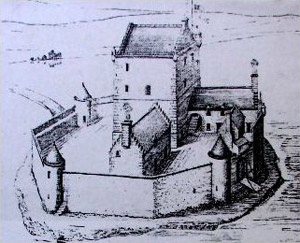WordPress database error: [Got error 28 from storage engine]
SELECT t.*, tt.*, tr.object_id FROM wp_terms AS t INNER JOIN wp_term_taxonomy AS tt ON tt.term_id = t.term_id INNER JOIN wp_term_relationships AS tr ON tr.term_taxonomy_id = tt.term_taxonomy_id WHERE tt.taxonomy IN ('category', 'post_tag', 'post_format') AND tr.object_id IN (5481) ORDER BY t.name ASC
Clan Malcolm History
The name Malcolm derives from the gaelic ‘Maol’, meaning ‘shaven-head’, and was used generally as a term for a monk. Thus ‘Maol Chalum’ can be translated as ‘monk’ or ‘disciple of Columba’.
The connection between the names Malcolm and MacCallum is shrouded in mystery although they are sometimes shown as alternative names for the same clan. However, no definite link has been shown between the two – the name of Colm was common in many areas of Celtic settlement; the name Malcolm appears as a distinct surname in parts of Dunbartonshire and Stirlingshire in the fourteenth century; while the MacCallum family were known to possess lands in Lorne in Argyllshire.
In the eighteenth century however, the two names were drawn together when the chief of the MacCallums, Dugald MacCallum of Poltalloch, adopted the name Malcolm. It was not clear why he took this step, but it appears that he certainly considered the two names to be interchangeable!
The Malcolm family had an impressive reputation for military and naval success throughout the eighteenth and nineteenth centuries. In addition to this, more than one of the chiefs of the clan has entered into the world of politics, the last of these being Sir Iain Malcolm, who was a Member of Parliament until 1919.
The family seat of the Malcolm clan is still at Duntrune Castle, where the family have resided for centuries.
Clan Malcolm Posts







